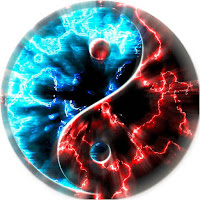4 weeks and an additional 10
services across five Holidays (Rosh Hashana, Yom Kippur, Sukkot, Shemini
Atzeret and Simchat Torah) has come to a close.
This is an extremely busy time of the year in the Jewish world: We start
the New Year, repent, celebrate the crossing of the desert (after leaving
Egypt) and receiving the Torah (we end and restart). There have been days for fressen
(Yiddish for eating like there is no tomorrow), fasting and festivities. During these High Holy Days, we reflect,
contemplate, ask for forgiveness and start over. And then…they are over and life goes back to
normal.
Or do they? Or, should they?
Since I have been a child,
these have been the days to see people who I have not seen throughout the year.
Because Rose Hashanah and Yom Kippur are such important holidays, these are the
few times a year that some people will go to services. Believe me, no matter what you believe in, an
opportunity to have a clean slate, spiritually, emotionally or physically is a
HUGE draw!
Some of my personal
take-aways:
· Saddest moment – We read about Moses and all the
great things that he did. He is the
ultimate heroic figure in the Torah, with the ability to accomplish big feats,
lead / create a nation that has endured and ultimately was very human. This is the time where we relive his final
days, and using the analogy from a Western, our favorite hero rides off into
the sunset.
· Meaningful moment – There is a portion of the
Yom Kippur service called Neilah, where the Aron Kodesh (ark) remains
open. This is where the Torah “resides.” We have a chance to stand in front,
symbolically face Hashem whose presence (Shechinah) can be felt, to give our
last appeals and pray for the future year, before he closes the ledger on our
lives for the upcoming year. It is a
powerful moment.
I find it interesting that we
focus our energies into this holiday, as every other religion does on their
holiest, most meaningful days. We all
talk about living with each other, while history teaches of wiping out our
enemies (so there can be no revenge). We
ask forgiveness for our actions, whether person-to-person, to a higher
authority or in commitments we make to ourselves. Yet, within a few weeks of self-reflection,
feeling good about our decision and looking towards a better future, we fall
back into our old ways. “We are only
human, Wayne,” is not an excuse. Because
it is easier? I would sooner agree with
that. It is simple to commit to being
better, but not easy to execute, as that means it takes work. Remember, working towards something positive
is worth the effort, provides a sense of accomplishment and inspires
other. As entrepreneur, author and motivational
speaker Jim Rohn states, “Don’t wish it were easier, wish you were
better.” Here’s to being better.




